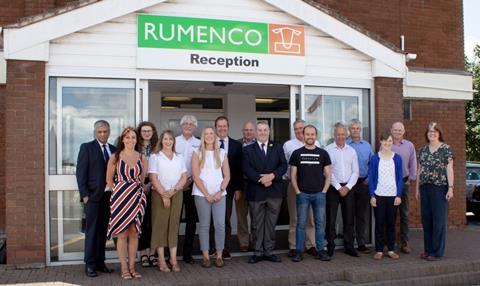Funding of £2.8 million has been awarded to a livestock project to put towards ruminant efficiency, sustainable farming and on-farm methane monitoring.

Following a Farming Innovation Competition hosted by the Department for Environmental Food and Rural Affairs (Defra) in partnership with Innovate UK, The Dancing with Daffodils project, which is being run by a consortium, will look at transforming the efficiency and sustainability of ruminant farming.
The partnership organisations which include Rumenco, Agroceutical Products Ltd, Analox Group, Beneve Ltd, Bioextraction Ltd, Bangor University, CIEL (Centre for Innovation Excellence in Livestock), Grampian Growers Ltd, Scotland's Rural College and Wynnstay, will combine their expertise during the project to address challenges relating to the sustainability of livestock farming.
Finding practical solutions
Annie Williams, business development manager at CIEL, said: “The project will focus on the development of an innovative feed additive to reduce methane emissions and enhance protein utilisation in ruminants. Secondly, the cultivation of a new cash crop, daffodils, for farm diversification purposes, and then finally the creation of a precision on-farm gas analyser to monitor methane emissions.
“Currently, livestock farming faces scrutiny in terms of its environmental impact and resource utilisation, particularly when it comes to methane contributions.
“Through the project, we can work to address these challenges head-on, and find a practical solution for making livestock farming more sustainable.”
The consortium will work closely with farmers, industry stakeholders, and policymakers throughout the project's lifecycle to ensure alignment with the sector's needs and priorities. By fostering collaboration and knowledge exchange, the consortium aims to bring tangible benefits to the farming community while contributing to national and global sustainability goals.
Williams concluded: “We’re delighted to receive funding from the Government and Innovate UK for the consortium project and it demonstrates their commitment to driving sustainable agriculture."
This story was originally published on a previous version of the Meat Management website and so there may be some missing images and formatting issues.












